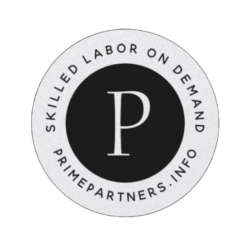Commercial Master Electrician Interview Help
Overview of Certifications, Educational Background, and Industry Qualifications
To become a Commercial Master Electrician, candidates must typically meet several educational and certification requirements, along with possessing relevant industry experience.
Required Certifications and Licenses
-
Journeyman Electrician License:
- Requirement: Before becoming a Master Electrician, candidates usually need to work as a Journeyman Electrician for several years.
- Experience: Typically requires 4-5 years of experience in the electrical field.
- Examination: Must pass a state or local licensing exam that covers electrical theory, code, and practices.
-
Master Electrician License:
- Requirement: This license is required to operate as a Master Electrician.
- Experience: Generally requires an additional 2 years of experience beyond the Journeyman level.
- Examination: Must pass a comprehensive exam focusing on advanced electrical knowledge and the National Electrical Code (NEC).
Recommended Certifications
-
National Institute for Certification in Engineering Technologies (NICET):
- Specializations in areas like electrical testing or systems design can enhance a candidate’s profile.
-
Occupational Safety and Health Administration (OSHA) Certification:
- Demonstrates knowledge of workplace safety, which is crucial in the electrical industry.
-
Additional State-Specific Certifications:
- Certain states may have additional certification requirements or endorsements for specialized electrical work.
Educational Background
-
High School Diploma or GED:
- Basic requirement for entering the electrical trade.
-
Associate’s Degree or Technical Diploma in Electrical Technology:
- Provides foundational knowledge in electrical systems, wiring, and safety.
-
Bachelor’s Degree in Electrical Engineering (Optional):
- Beneficial for those aiming to move into management or specialized technical roles.
Industry Qualifications
- Continuing Education: Many states require ongoing education to maintain licensure, ensuring that electricians stay up-to-date with the latest codes and technologies.
- Apprenticeship Programs: Hands-on training programs that combine classroom instruction with on-the-job training.
Interview Questions and Answers
Technical Questions
1. Describe how you would plan and execute a complex commercial electrical installation project.
Answer:
- Planning: Begin with a detailed review of the project blueprints and specifications. Consult with architects and engineers to clarify electrical requirements.
- Example: On a past project installing a new lighting system for a commercial office building, I collaborated with the design team to ensure all fixtures met energy efficiency standards.
- Execution: Develop a detailed timeline with milestones and assign tasks to team members based on their strengths.
- Outcome: Successfully completed the project on time, under budget, and with no safety incidents, resulting in a highly efficient lighting system.
- Best Practices: Always adhere to the National Electrical Code (NEC) to ensure compliance and safety.
- Pitfalls: Avoid underestimating the complexity of the project and ensure all team members are clear on their responsibilities.
- Follow-Up: An interviewer might ask how you handle changes in project scope or unexpected delays, so be prepared to discuss flexibility and problem-solving strategies.
2. How do you ensure compliance with electrical codes and standards in your work?
Answer:
- Research and Preparation: Regularly review updates to the National Electrical Code (NEC) and local amendments.
- Example: On a commercial renovation project, I conducted a code compliance audit to identify and rectify potential violations before inspection.
- Outcome: Passed the inspection without any violations, avoiding costly rework and delays.
- Best Practices: Engage in continuous education and attend workshops to stay informed about code changes.
- Pitfalls: Never assume that previous knowledge is sufficient; codes and standards evolve.
- Follow-Up: Be ready to discuss a specific instance where compliance was particularly challenging and how you overcame it.
Behavioral Questions
3. How do you manage conflicts within your team during a project?
Answer:
- Communication and Mediation: Address conflicts directly by facilitating open discussions to understand each party’s perspective.
- Example: During a large-scale project, two team members disagreed on installation methods. I organized a meeting where each could present their case, leading to a consensus-driven solution.
- Outcome: Improved team cohesion and project efficiency, as well as a better working relationship between the team members.
- Best Practices: Foster an environment of respect and collaboration, encouraging team members to voice concerns early.
- Pitfalls: Avoid ignoring conflicts, as they can escalate and impact project timelines.
- Follow-Up: An interviewer may inquire about how you measure the effectiveness of your conflict resolution strategies.
Situational Questions
4. Imagine you are faced with a sudden power outage in a commercial building. What steps would you take to address the issue?
Answer:
- Initial Assessment: Quickly determine the scope and possible cause of the outage.
- Example: In a situation where a power outage occurred due to a tripped breaker, I assessed the load distribution and identified an overloaded circuit as the cause.
- Outcome: Rebalanced the load and restored power efficiently, minimizing downtime for the building occupants.
- Best Practices: Always prioritize safety by shutting off power before inspecting electrical panels.
- Pitfalls: Never rush to conclusions without a thorough assessment, as this can lead to further issues.
- Follow-Up: Be prepared to discuss how you ensure a similar issue does not recur, focusing on preventive measures.
Problem-Solving Questions
5. How would you approach diagnosing a recurring electrical fault in a commercial setting?
Answer:
- Systematic Troubleshooting: Start with a detailed examination of the electrical schematics and conduct tests using diagnostic tools.
- Example: Faced with a recurring fault in a building’s HVAC system, I isolated the problem to a faulty relay after testing various components.
- Outcome: Replaced the relay, resolving the fault and improving system reliability.
- Best Practices: Document each step of your diagnostic process to track patterns and potential underlying causes.
- Pitfalls: Avoid replacing components without confirming they are the root cause, which can lead to unnecessary expenses.
- Follow-Up: Interviewers might ask how you involve the client in the troubleshooting process and how you communicate technical issues to non-technical stakeholders.
These questions and detailed answers are designed to cover a range of scenarios that a Commercial Master Electrician might face, demonstrating a deep understanding of both technical and interpersonal aspects of the role. Prepare to engage in discussions about these topics, as interviewers will likely probe deeper into your experiences and decision-making processes.
More Commercial Interview Guides
Explore more interview guides for Electrical positions.
Commercial Data Center Electrician Interview Guide
The Commercial Data Center Electrician Interview Guide equips job seekers with essential insights to excel in intervi...
Commercial Apprentice Electrician Interview Help
This guide is designed to equip commercial apprentice electricians with the essential knowledge and skills needed for...
Commercial Solar Electrician Interview Questions and Answers
This guide provides job seekers with essential Commercial Solar Electrician interview questions and expert-crafted an...
Commercial Electrical Inspector Interview Help
This guide prepares job seekers for a Commercial Electrical Inspector interview by providing key insights into the ro...
Commercial Journeyman Electrician Interview Preparation
This Commercial Journeyman Electrician Interview Preparation guide equips job seekers with essential insights and str...
Recent Articles
Check out more articles from Best Electrician Jobs about getting hired inthe electrical industry.
Best Job Board for Electricians
Discover the best job board for electricians! Boost your career with insights on salaries, training, and growth!
Improve Your Electrician Job Postings for More Applicants
Discover how to improve your electrician job postings for more applicants! Boost your career with insights on salarie...
What is the Highest Paying Electrician Role?
Discover the highest paying electrician roles and how to prepare for them. Learn about the skills and certifications ...
Industrial Electrician Careers in California
From manufacturing plants to data centers, industrial electricians play a vital role in California's economy. Discove...
Security Technician Interview Questions and Answers
Security technicians are essential in protecting our modern world. Learn what to expect in your Security Technician i...
Featured Jobs
-

- Company
- Prime Partners
- Title and Location
- Cable Technician
- Wyoming, MI
- Employment Type
- FULL_TIME
- Salary
- $25.16-$32.59/HOUR
- Team and Date
- Commercial
- Posted: 04/17/2025
-

- Company
- Prime Partners
- Title and Location
- Apprentice Electrician
- San Diego, CA
- Employment Type
- FULL_TIME
- Salary
- $24-$37/HOUR
- Team and Date
- Commercial
- Posted: 04/17/2025
-

- Company
- Prime Partners
- Title and Location
- Security Alarm Installer
- Mesa, AZ
- Employment Type
- FULL_TIME
- Salary
- $25.81-$30.68/HOUR
- Team and Date
- Commercial
- Posted: 04/17/2025
-
- Company
- Jackson Healthcare
- Title and Location
- Journeyman Electrician
- Alpharetta, GA
- Employment Type
- FULL_TIME
- Salary
- $30.6-$35.86/HOUR
- Team and Date
- Commercial
- Posted: 04/17/2025
-

- Company
- Prime Partners
- Title and Location
- Journeyman Electrician
- Gilbert, AZ
- Employment Type
- FULL_TIME
- Salary
- $40-$55/HOUR
- Team and Date
- Data Center
- Posted: 04/17/2025
-

- Company
- Prime Partners
- Title and Location
- Voice & Data Technician
- Glendale, AZ
- Employment Type
- FULL_TIME
- Salary
- $23-$35/HOUR
- Team and Date
- Commercial
- Posted: 04/17/2025
Best Electrician Jobs
Ready to get started?
Stop worring about manpower. And get back to what you do best.
Best Electrician Jobs is for Everyone
At Best Electrician Jobs, we are dedicated to fostering an inclusive environment that values diverse perspectives, ideas, and backgrounds. We strive to ensure equal employment opportunities for all applicants and employees. Our commitment is to prevent discrimination based on any protected characteristic, including race, color, ancestry, national origin, religion, creed, age, disability (mental and physical), sex, gender, sexual orientation, gender identity, gender expression, medical condition, genetic information, family care or medical leave status, marital status, domestic partner status, and military and veteran status.
We uphold all characteristics protected by US federal, state, or local laws, as well as the laws of the country or jurisdiction where you work.
 Best Electrician Jobs
Best Electrician Jobs